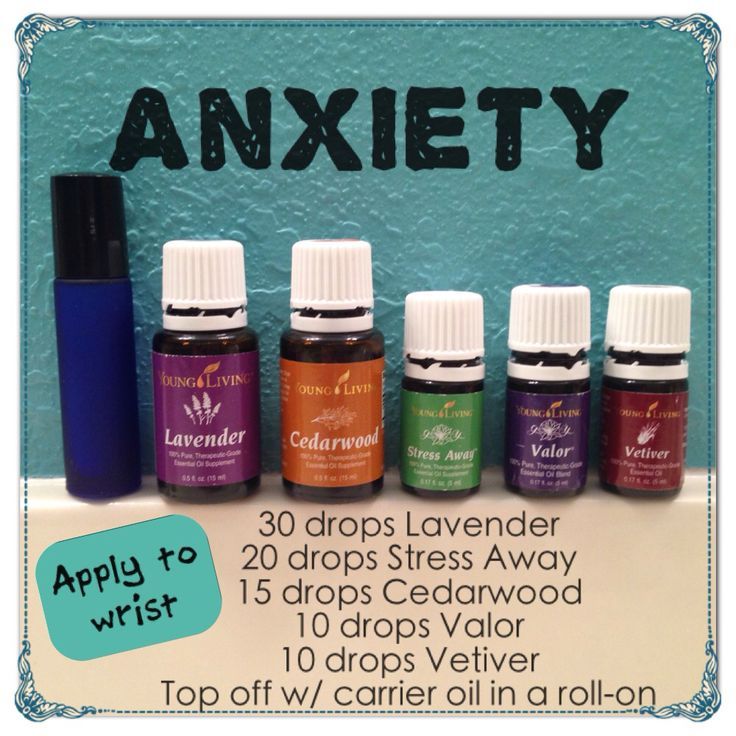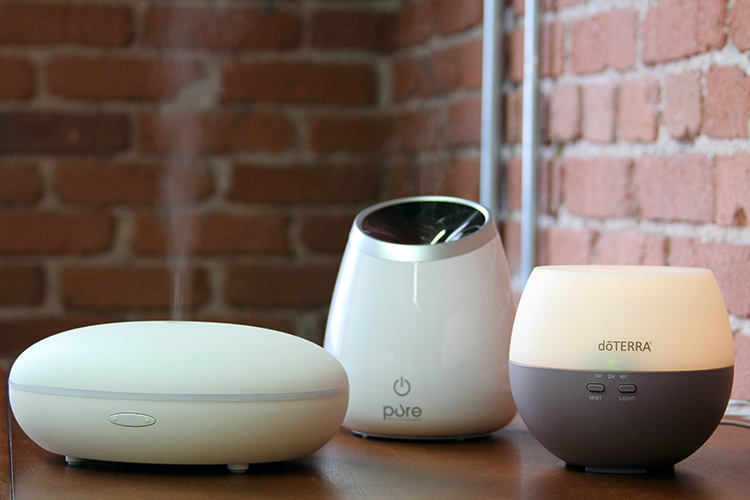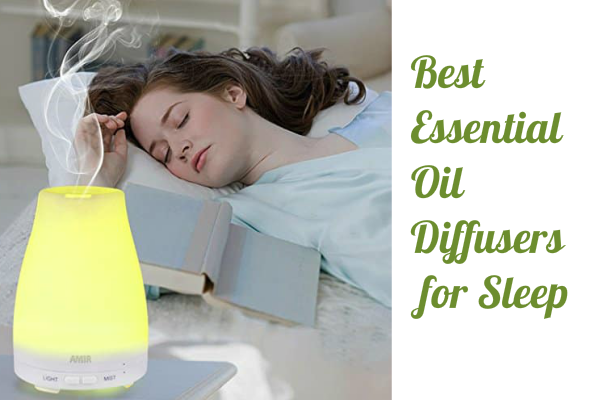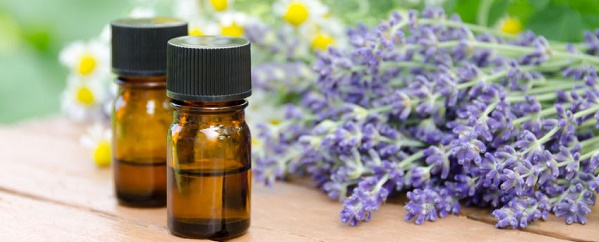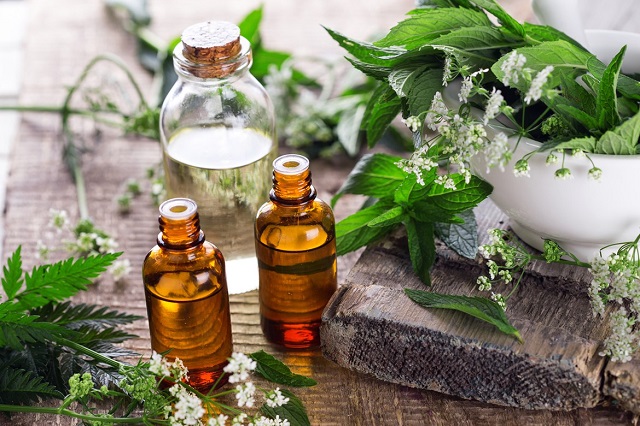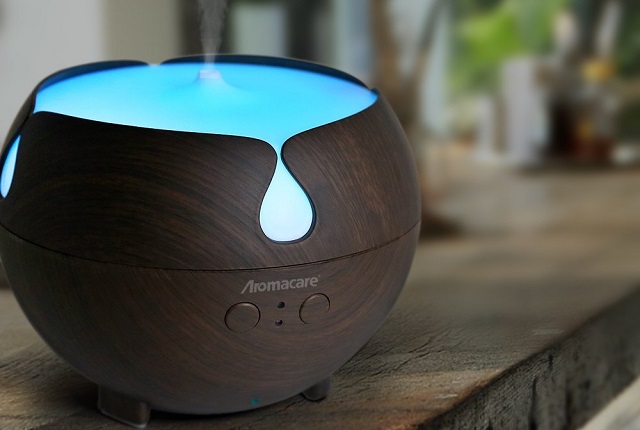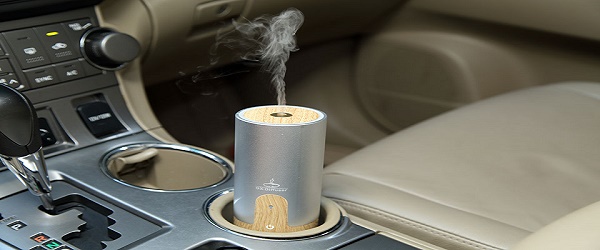Top Essential Oils for Anxiety: Your Ultimate How-To Guide
Feeling anxious can throw off your day, but I’ve found a natural ally in essential oils. They’re not just for a pleasant aroma; these potent plant extracts can be powerful tools in managing anxiety. I’ll guide you through the best ones to reach for when you need to calm your mind.
Knowing how to use essential oils effectively is key to reaping their benefits. I’ll share the most effective ways to incorporate them into your daily routine for a serene and balanced life. Stick with me, and let’s explore the soothing world of essential oils together.
The Role of Essential Oils in Managing Anxiety
When exploring the impact of essential oils on anxiety management, it’s essential to understand how these oils work to influence our mood and emotions. Aromatherapy—the practice of using essential oils for therapeutic benefit—is not a new-age trend; it’s a time-honored approach that has gained scientific credibility over the years.
Our sense of smell plays a pivotal role in how we process emotions. Inhalation of essential oils triggers our olfactory system, the part of the brain connected to smell. This system is directly linked to the limbic system, which is often called the “emotional brain.” When the aromatic molecules of essential oils enter the limbic system, they can help to reduce stress and calm anxiety by eliciting a soothing response.
Moreover, essential oils can be absorbed through the skin, proving their versatility beyond just inhalation. When applied topically with a carrier oil, the active compounds in the oils penetrate the skin and are carried to the bloodstream, potentially offering therapeutic effects throughout the body.
To maximize these benefits, it’s crucial to choose the right essential oils for anxiety. Oils like lavender, chamomile, and ylang-ylang have compounds that are believed to act as natural anxiolytics, agents that help reduce anxiety. Each oil harbors unique properties that can bring about a sense of peace and balance to a tumultuous mind.
- Lavender oil, for instance, is renowned for its relaxing effects and is often the go-to choice for stress relief.
- Chamomile oil is touted for its calming properties and is also known to aid in promoting better sleep.
- Ylang-Ylang has a uplifting effect that also boasts sedative properties contributing to a lowering of the stress response.
In the next section, I’ll delve into the specifics of these oils and provide insight on how to incorporate them into your daily life to harness their full potential in your journey to find tranquility.
Top Essential Oils for Calming Anxiety
When it comes to soothing an anxious mind, not all essential oils are created equal. Some have a higher propensity to calm the nervous system and reduce stress. Here’s my go-to list of essential oils that I’ve found particularly helpful for anxiety relief:
- Lavender: Celebrated for its relaxation-inducing properties, lavender oil not only helps with sleep but also mitigates anxiety.
- Chamomile: Known for its calming effects, especially in tea form, chamomile oil is another favorite for easing the mind.
- Ylang-Ylang: This oil is a powerhouse for stress relief, promoting a positive outlook and uplifting mood.
- Frankincense: Often used in meditation, frankincense can deepen breathing and bring about a sense of peace.
- Bergamot: Citrusy and refreshing, bergamot can reduce cortisol levels and improve mood.
Incorporating these oils into my daily routine has been a game-changer. For a quick fix, I’ll add a few drops of lavender or chamomile to my diffuser and let the mist envelop me in a soothing aroma. When on the go, I’ll dab a little ylang-ylang or bergamot on my wrists or the nape of my neck for a calming sensation that follows me throughout the day.
I’ve also found that adding essential oils to a warm bath can enhance their anxiety-reducing effects. Mix them with a dispersant, like a carrier oil or bath salts, before placing them in the water to ensure proper distribution.
Additionally, consider blending oils to create a personalized anxiety relief synergy. A mixture of lavender and frankincense, for example, creates a deeply soothing experience that can aid in unwinding after a long day. Just remember to always dilute essential oils with a carrier oil before applying to the skin to avoid irritation.
As with anything health-related, quality matters. I always recommend using 100% pure, therapeutic-grade essential oils for the best results. Be sure to check the oils for purity and authenticity to ensure they’re free of additives that could dilute their effectiveness.
Lavender Essential Oil: A Natural Stress Reliever
When it comes to calming the mind and alleviating stress, lavender essential oil is often the go-to remedy. As one of the most researched essential oils, its effectiveness isn’t just anecdotal; numerous studies support its use for anxiety and stress relief. With its floral, herbaceous scent, lavender oil isn’t just soothing to the senses – it has physiological effects on the body.
I regularly find that incorporating lavender oil into my routine reduces feelings of anxiousness and promotes relaxation. The compounds in lavender, like linalool and linalyl acetate, are credited with these calming properties. They work by impacting the limbic system, the part of the brain that controls emotions.
Here’s how I like to use lavender oil:
- In a diffuser: A few drops in a diffuser fill the room with its serene scent, creating a tranquil environment.
- Topical application: Diluted with a carrier oil, I apply it onto my temples and wrists, especially before bedtime.
- Inhalation: For a quick stress relief, I take a deep breath directly from the bottle or from a cotton ball dabbed with a drop or two.
For those new to essential oils, it’s crucial to ensure you’re using therapeutic-grade lavender oil. This means it’s been tested for purity and contains no synthetic additives. To verify this, I always look for reputable brands and check product labels for authentication.
In addition to its anti-anxiety properties, lavender oil is also famed for its ability to promote better sleep, another beneficial factor for those struggling with anxiety. A study published in the Journal of Alternative and Complementary Medicine found that inhaling lavender oil before bed improved the sleep quality of participants suffering from insomnia.
Whether it’s through facilitating a better night’s rest or offering a serene escape during the day, lavender oil has a valued place in my toolkit for managing anxiety. I find that its versatility and ease of use make it an excellent choice for those looking to integrate a natural form of stress relief into their lives. With regular use, it’s possible to notice a significant improvement in overall wellbeing.
Chamomile Essential Oil: Soothing Nerves and Promoting Relaxation
Chamomile essential oil, derived from the chamomile plant, has been revered for centuries for its soothing and calming properties. It’s a go-to remedy for those dealing with anxiety and stress. Studies show that chamomile oil contains compounds such as apigenin and bisabolol that can help calm the nervous system and promote relaxation.
Personally, I love chamomile oil for its gentle action. I’ve found it to be particularly effective when my mind starts racing before bed. Here’s how you can use chamomile oil to manage anxiety:
- In a diffuser: Add a few drops to your diffuser to create a tranquil environment.
- Topical application: Mix with a carrier oil and massage onto pressure points.
- In a warm bath: A few drops in a bath can help you unwind after a long day.
When working with chamomile oil, selecting high-quality, pure chamomile oil is crucial for the best effects. It’s also a good idea to perform a patch test to ensure you don’t have an allergic reaction, especially if you’re new to using essential oils topically.
Beyond its anxiety-relieving capabilities, chamomile essential oil also offers additional benefits. It’s been shown to enhance sleep quality which is often disturbed by anxiety. It’s also known to aid in digestive comfort which can be beneficial since stress and anxiety can take a toll on the digestive system.
Remember, while essential oils can be a powerful adjunct to managing anxiety, they are not a cure-all. It’s vital to consult healthcare professionals if anxiety is severely impacting your daily life.
Using essential oils like chamomile can complement other anxiety management practices, such as mindfulness meditation, regular physical exercise, and proper sleep hygiene. The journey to managing anxiety is personal, and incorporating essential oils is just one of many steps you can take on this path.
Bergamot Essential Oil: Uplifting the Mood and Easing Anxiety
Bergamot essential oil is another powerhouse when it comes to tackling anxiety. Its citrusy fragrance is uplifting and can quickly enhance one’s mood. Extracted from the peel of the bergamot orange, this essential oil is often used in aromatherapy to relieve stress and create a sense of well-being.
One of the compounds found in bergamot oil is limonene, which has been shown to have anti-anxiety properties. The way bergamot oil affects the body suggests that it can help reduce cortisol levels, a hormone associated with stress. When I use bergamot oil, I often find that my usual anxiety symptoms are less pronounced, and there’s a general feeling of calmness that settles in.
Let’s talk about ways to use bergamot essential oil effectively:
- Aromatherapy Diffusion: Add a few drops of bergamot oil to your diffuser. The scent will permeate the room, creating a calming atmosphere.
- Topical Application: Dilute with a carrier oil and apply to the wrists or the soles of the feet for a quick calm-me-down. Make sure to perform a patch test first to avoid any skin irritation.
- Inhalation: Simply inhaling it straight from the bottle or on a handkerchief can provide an instant soothing effect.
It’s important to note that bergamot essential oil is photosensitive, so after application on the skin, avoid direct sunlight for a few hours to prevent any adverse reactions. Always look for pure, high-quality bergamot oil, as synthetic versions may not have the same therapeutic effects.
Adding bergamot oil to your routine can compliment the chamomile oil I discussed earlier. Both have unique properties that make them excellent for combating anxiety in different ways. Along with its anxiety-reducing capabilities, bergamot oil is also thought to improve skin conditions and gut health, making it a versatile addition to your natural health regimen.
Remember, while essential oils like bergamot can be quite effective, they should be used as part of a broader anxiety management strategy. Regularly engaging in activities that reduce stress, maintaining a healthy diet, and getting enough rest play a critical role in controlling anxiety levels.
Ylang Ylang Essential Oil: Harmonizing the Mind and Body
When I delve into the power of essential oils to soothe anxiety, ylang ylang oil often stands out due to its harmonizing abilities. Ylang ylang oil has a rich, floral scent that’s renowned for its stress-relieving and uplifting effects on the mind. I’ve found that its versatile nature makes it a favorite among aromatherapists and enthusiasts alike.
The key compounds in ylang ylang oil, such as linalool and germacrene, contribute to its sedative properties which may help regulate adrenaline flow and relax the nervous system. As a result, I’ve noticed a significant improvement in my mood when I use ylang ylang oil on stressful days.
Here are a few ways I incorporate ylang ylang oil into my routine to manage anxiety:
- Aromatherapy diffuser: I add a couple of drops to my diffuser to create a calming atmosphere at home.
- Topical application: Diluted with a carrier oil, it can be massaged into the skin for a tranquilizing effect.
- Bath soak: Mixing a few drops into a warm bath helps me unwind before bedtime.
Not only does ylang ylang help with anxiety, but it’s also touted for its benefits in balancing hormones and improving sexual health. Its ability to enhance mood can be particularly beneficial for those dealing with stress-induced issues.
Precautions are paramount when using ylang ylang oil. Since it’s highly concentrated, I always make sure to dilute it properly and perform a patch test before topical use to prevent any adverse reactions. People with low blood pressure should use ylang ylang with care, as its relaxing properties may lower blood pressure further.
Incorporating ylang ylang oil into a daily self-care routine, alongside mindful practices like meditation and yoga, has helped me cultivate a more serene and balanced lifestyle. Its multifaceted benefits have made it an indispensable component in my arsenal against anxiety.
Patchouli Essential Oil: Grounding and Balancing Emotions
Patchouli essential oil, derived from the leaves of the Pogostemon cablin plant, is another remarkable ally in the quest to alleviate anxiety. Historically, patchouli has been used in traditional medicine for its soothing properties and earthy aroma. Known for its grounding effects, patchouli oil helps create an atmosphere of tranquility, which can be particularly helpful when I’m feeling disconnected or overwhelmed.
The active components in patchouli essential oil, including patchoulol, α-patchoulene, and β-patchoulene, contribute to its therapeutic effects. These compounds have been shown to reduce stress levels and promote emotional wellbeing. When I’m looking to center my mind and stabilize fluctuating emotions, patchouli oil is my go-to option.
There are several ways I like to utilize patchouli oil in my daily routine:
- In a diffuser: Adding a few drops to my diffuser not only perfumes the air with a grounding scent but also fosters a serene environment.
- As a personal fragrance: Diluting patchouli oil with a carrier oil and applying it to my wrists helps me carry its calming essence throughout the day.
- In bath products: Infusing bath salts or oils with patchouli offers a deeply relaxing end-of-day ritual.
While patchouli oil is generally mild, I always recommend patch testing before applying it directly to the skin. Blending it with other anxiety-relieving oils like lavender or chamomile can enhance its benefits, creating a custom blend that caters to my mood and preferences.
Engaging in practices such as mindfulness or deep-breathing exercises while using patchouli oil can amplify its grounding effects. It’s essential in an anxiety-management toolkit, working subtly to rebalance emotions and foster a sense of inner peace. Finding the right balance that works for each individual is key, and with patchouli oil, that balance feels more attainable.
How to Use Essential Oils for Anxiety Relief
When I’m looking to manage my anxiety with essential oils, I know that method of use is just as important as the oil itself. The versatility of essential oils means there’s a variety of ways to harness their benefits, depending on what works best for me at a given moment.
Aromatherapy Diffusion
One of my favorite methods is using an aromatherapy diffuser. It’s incredibly simple: I just add a few drops of my chosen anxiety-relieving oil to the diffuser with water and let it disperse the soothing scent throughout the room. This passive inhalation can have a calming effect on my entire environment.
- Lavender
- Chamomile
- Bergamot
These are the oils I frequently use for diffusion because of their proven track record in alleviating anxiety.
Topical Application
Sometimes, I need a more direct approach, and that’s where topical application comes in. Dilution is key here; I always mix a few drops of essential oil with a carrier oil like coconut or almond oil before applying it to my skin. The best spots for application are the wrists, temples, and neck where the oil can easily enter my bloodstream.
- 2 drops of essential oil
- 1 tablespoon of carrier oil
These proportions help me avoid skin irritation. Plus, the act of massaging the oil into my skin can be therapeutic in itself.
Custom Blends and Baths
Creating custom oil blends tailored to my anxiety levels offers me a personalized experience. Start with a base of a carrier oil and add oils like vetiver for grounding or ylang-ylang for uplifting effects. Alternatively, I can add these blends to a warm bath for an immersive experience that combines the benefits of essential oils with the relaxing properties of warm water.
Remembering to rotate or mix essential oils ensures I don’t become desensitized to their effects. Different oils can provide a fresh perspective and potential relief, making each method of use an opportunity to explore what best addresses my symptoms of anxiety.
Aromatherapy: Diffusing Essential Oils for a Calming Atmosphere
Incorporating aromatherapy into my daily routine has been a game-changer for reducing my anxiety. Diffusing essential oils is one of the easiest and most effective ways to create a calming atmosphere in any environment. I’ve discovered that particular essential oils are especially beneficial for soothing the mind and promoting relaxation.
Lavender, with its gentle floral scent, is well-known for its calming properties. Studies have shown that breathing in the scent of lavender can significantly decrease stress levels. Similarly, Chamomile and Ylang Ylang are excellent choices for their stress-relieving effects. When diffused, these oils can help create a serene backdrop for relaxation or meditation.
For those new to essential oil diffusers, here’s how I’ve found the process works best:
- Start by adding water to the diffuser’s reservoir up to the fill line.
- Add a few drops – typically between 5 and 10 – of your chosen essential oil or blend.
- Turn on the diffuser and adjust the settings to your preference, whether for intermittent or continuous dispersal.
The power of diffusion lies in the fine mist that carries the essential oil molecules into the air, enveloping the room with their therapeutic properties. The effects are not just psychological but also physical. Breathing in the subtle vapors can directly influence the limbic system, the part of the brain that governs emotions.
When it comes to diffusing oils for anxiety relief, I often blend Lavender with Bergamot, which is praised for its uplifting yet calming scent profile. But it’s not just about the type of oil – the quality matters too. For the best experience, I always look for pure, organic essential oils void of any synthetic additives.
Diffusing essential oils throughout the day can help maintain a consistent feeling of tranquility. I recommend using a timer or intermittent setting on your diffuser. This can help space out the aromatic benefits and prevent olfactory fatigue, ensuring that the calming effects don’t diminish over time.
Topical Application: Directly Applying Essential Oils for Anxiety Relief
When discussing essential oil use for anxiety relief, it’s important not to overlook topical application, which can be highly effective. By applying oils directly to the skin, the therapeutic compounds are absorbed into the bloodstream, providing direct benefits that can enhance your mood and promote calmness.
Before using essential oils topically, it’s critical to dilute them with a carrier oil such as coconut, jojoba, or almond oil. This dilution is necessary to avoid skin irritation and sensitization. As a general rule of thumb, aim for a dilution rate of about 1-2% for adults, which translates to about 1-2 drops of essential oil per teaspoon of carrier oil.
Some of the best areas to apply essential oils for anxiety relief include:
- Wrists
- Temples
- Behind the ears
- Soles of the feet
Gently massage the oil into these pressure points to enhance absorption and stimulate a soothing response in the body.
When I’m selecting oils for topical application to combat anxiety, my go-to choices often remain the same. Oils like lavender, known for its sedative properties, and chamomile, with its calming effects, are staples in my routine. Another favorite is bergamot, which has been studied for its ability to reduce corticosterone response to stress in rats.
Here’s a simple breakdown for a calming blend I frequently use:
- 2 drops of lavender oil
- 2 drops of chamomile oil
- 1 drop of ylang-ylang oil
- 1 tablespoon of your chosen carrier oil
Combine these in a small bottle and roll or rub between your palms before applying. The warmth of your hands will help activate the oils, releasing their aroma before you apply them to your body.
Remember to perform a patch test before applying a new oil or blend to ensure you don’t have an allergic reaction. Apply a small amount on the inside of your arm and wait for at least 24 hours to see if there’s any adverse reaction.
Always consult with a healthcare professional if you’re pregnant, nursing, or have any ongoing health concerns prior to beginning any new topical treatment with essential oils.
Bathing: Creating a Relaxing Bath with Essential Oils
Incorporating essential oils into your bathing routine can transform an ordinary soak into a luxurious spa experience that may help ease anxiety. Lavender and chamomile oils are particularly renowned for promoting relaxation and can be wonderful additions to a warm bath before bedtime, enhancing your ability to wind down.
To begin, I’ll fill my tub with warm water — not too hot, as extreme temperatures can cause essential oils to evaporate quickly, reducing their therapeutic benefits. As the tub fills, I’ll add 5-10 drops of essential oils, but not directly into the water. Instead, I mix the oils with a teaspoon of carrier oil, like jojoba or coconut oil, or even an unscented bath gel to help disperse the oil evenly throughout the water. This little trick helps prevent the oils from floating on the surface, ensuring that their calming properties envelop my entire body.
For an enhanced bath experience, sometimes I like to combine essential oils to create a personalized blend. Here’s a simple yet effective recipe:
- 4 drops of lavender oil
- 3 drops of chamomile oil
- 2 drops of ylang-ylang oil
- 1 teaspoon of carrier oil
Before I sink into the bath, I make sure the room is set up to encourage relaxation. Soft lighting, perhaps from candles, and soothing background music can significantly amplify the calming effect. Immersing myself in the fragrant water, I take deep, slow breaths and allow the essential oil-infused steam to work its magic, filling my senses.
While taking a bath, I always remind myself to stay hydrated. A glass of cool water within reach is a must to replenish fluids and maintain a balance. Post-bath, I usually wrap up in a soft towel or robe and continue to relax for a while, giving my skin ample time to absorb the oils.
Remember, essential oils are potent. It’s important to do a patch test if it’s your first time using a new oil, and some oils should be avoided in cases of certain health conditions or during pregnancy, so it’s always wise to do your research or consult with a healthcare professional before diving in.
Conclusion: Finding Comfort and Tranquility with Essential Oils
Navigating the world of essential oils for anxiety relief can be a soothing journey in itself. Armed with the knowledge of how to diffuse oils for aromatherapy or blend them for a tranquil bath, you’re well on your way to creating a haven of peace. Remember, personalizing your approach with oils like lavender, chamomile, and ylang-ylang can make all the difference in your relaxation routine. Just ensure you’re doing a patch test to safeguard your skin, and stay hydrated to maximize the benefits. Embrace these natural essences and let them guide you to a calmer state of mind.

